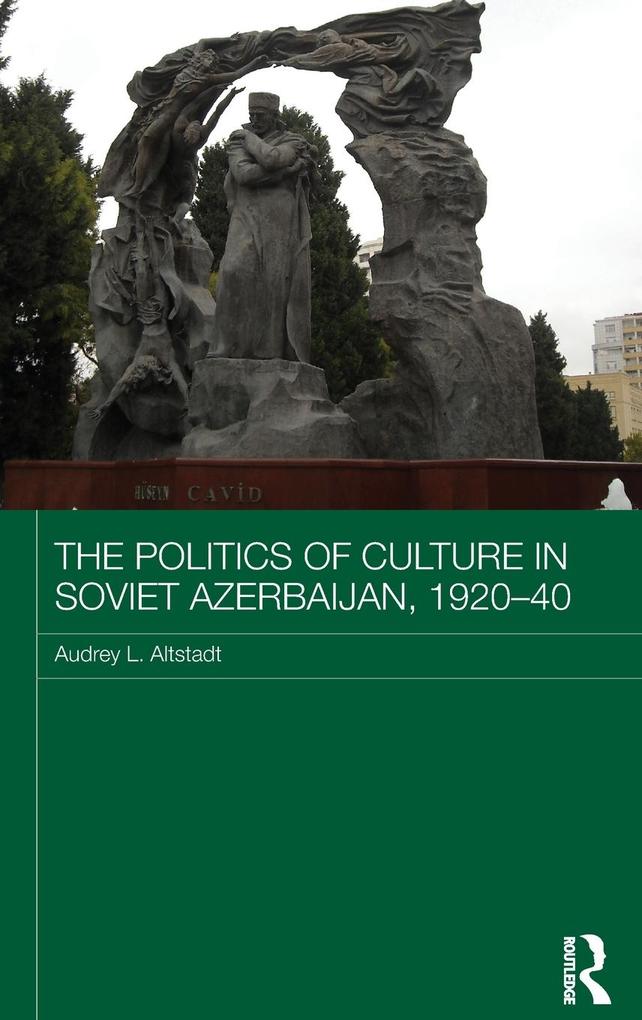
Zustellung: Di, 29.07. - Fr, 01.08.
Versand in 7 Tagen
VersandkostenfreiBestellen & in Filiale abholen:
The early Soviet Union's "nationalities policy" involved the formation of national republics, within which "nation building" and "modernization" were undertaken for the benefit of "backward" peoples. This book, in considering how such policies were implemented in Azerbaijan, argues that the Soviet policies were a form of imperialism. It details, in the period 1920 to 1940, how the two visions competed with each other, with eventually the pre-Soviet vision of Azerbaijani culture losing. The book concludes by exploring how pre-Soviet Azerbaijani culture survived to a degree underground, which was partially rehabilitated after the death of Stalin, and more fully in the late Soviet period.
Inhaltsverzeichnis
Introduction
1. The Azerbaijani Enlightenment: Constructing and Disseminating A Turkic Identity
2. Soviet Cultural Policies, 1920-1940: Modernization or Imperialism?
3. Dotting the I's: Alphabet Change and Language Reform in Soviet Azerbaijan
4. Schools: Educating Citizens or "Human Material"?
5. Scholarship Meets Voch-Tech: The Continuous Purge
6. The End of Laughter: Proletarian Literature Is Born
Conclusion
1. The Azerbaijani Enlightenment: Constructing and Disseminating A Turkic Identity
2. Soviet Cultural Policies, 1920-1940: Modernization or Imperialism?
3. Dotting the I's: Alphabet Change and Language Reform in Soviet Azerbaijan
4. Schools: Educating Citizens or "Human Material"?
5. Scholarship Meets Voch-Tech: The Continuous Purge
6. The End of Laughter: Proletarian Literature Is Born
Conclusion
Produktdetails
Erscheinungsdatum
28. Juni 2016
Sprache
englisch
Seitenanzahl
258
Autor/Autorin
Audrey Altstadt
Verlag/Hersteller
Produktart
gebunden
Gewicht
555 g
Größe (L/B/H)
240/161/19 mm
ISBN
9781138639003
Entdecken Sie mehr
Bewertungen
0 Bewertungen
Es wurden noch keine Bewertungen abgegeben. Schreiben Sie die erste Bewertung zu "The Politics of Culture in Soviet Azerbaijan, 1920-40" und helfen Sie damit anderen bei der Kaufentscheidung.









